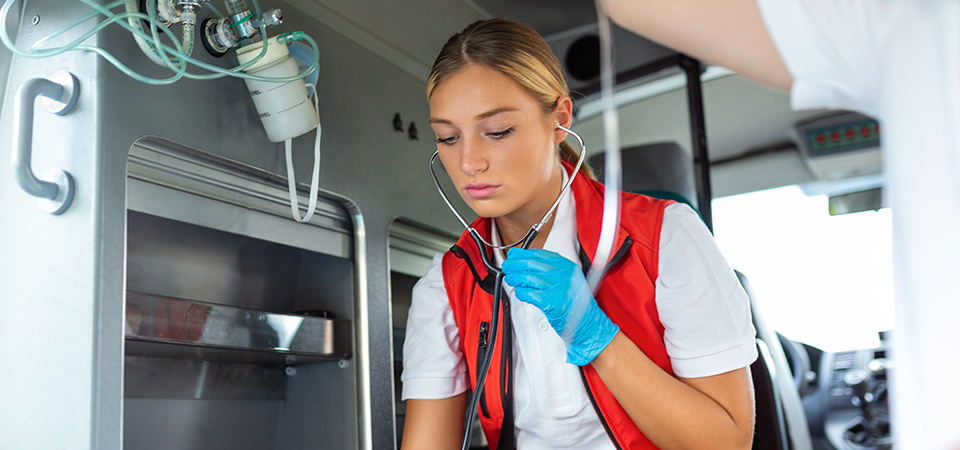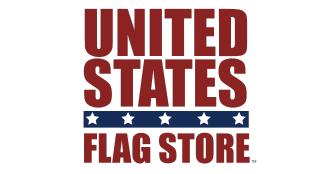Posted by Travis McRae on Oct 26th 2023
The Significance of October 28th; International Recognition of First Responders' Day

Every day approximately 4.6 million people show up when disaster strikes. Their job is to assist and help where they are needed in the face of a crisis or an emergency. These brave men and women must act quickly and courageously utilizing all their knowledge and specialized training to help resolve the situation and bring stasis back to our environment. To help those who desperately need it in times of peril. Every day our heroes act selflessly, with dedication, and oftentimes risk their own safety and lives. With all of this and more that we can't even begin to touch on in a simple paragraph, is it really that tough for us to set aside a single day for them?
Fortunately, we do and got that. Passed by the Senate in 2017, and the House in 2019, we got it. A day to appreciate our nation's paramedics, EMTs, firefighters, and police officers. This day is set aside to celebrate them and all that they do. It is a time of gratitude for their service and commitment to making our communities a better place to live. It is also an important time to acknowledge some of the potential negative mental health impacts brought on by these careers in high-stress situations such as Post-Traumatic Stress Disorder, depression, anxiety, and burnout.
In this article, we will be discussing the history of First Responders including the modern-day Fire and Police Departments, their history, and how they came to be, Emergency Medical Technicians, and their origins. We'll also cover some of the difficulties that these jobs entail. We will also touch base on how this day came about what some organizations and companies are doing to honor them, and ways that you too can celebrate and honor the first responders in your hometown.
The Origins of Firefighting
Even though the history of firefighting dates back as far as the second century AD in ancient Egypt, and even during the reign of Augustus Ceasar, the great nephew of Julius Ceasar in Rome, we are going to cover its origins within the United States primarily. The first paid, full-time fire department was established in Boston in 1679 after a large fire ravaged most of the city. This would lead to the import of a fire engine from London along with the employment of Thomas Atkins as Fire Chief with twelve firefighters to operate it.
Before this, there was what was known as "night fire watches," a collective group of volunteers instituted in larger cities around the country to keep watch for anything that burned a little too bright in the night. Another volunteer organization called the Union Fire Company would be formed under the recommendation of Benjamin Franklin in 1736. It wouldn't be until over a century later, around the time of the American Civil War, that government-run fire departments would finally come to fruition. (Firefighting Origins)
Before the federal government's involvement in this public safety department, most fire departments were either independently run by volunteers or under the general municipality of the city or township they were located. It should also be noted that before government-backed fire departments, most of these independent and municipality-based establishments competed with each other as insurance companies would often finance and or compensate them if the building or property that was in danger was saved. (The History of Firefighting | Merrimack NH.)
The Police Force; From privately funded hired service to community-focused leaders and mentors
Before the standards and practices held in place today, policing in colonial America was informal and even held the interests of for-profit companies, businesses, and institutions in the highest regard. The police of this time were hired for the protection of goods and services offered by these investors. Most towns across America relied solely on a "night watch," program that was dependent on volunteers who were either poverty-stricken and forced to work more than one job or forced to do so as a form of punishment. (Waxman, Olivia) With the night watch either being too tired or drunk to work efficiently or due to disdain in their position, this model would soon be abandoned. The inefficiency of the "night watch," program would be forced to concede due to this, and as the urbanization of America saw communities explode into full-blown cities.
Boston would again be the centerpiece for change with the development of the first publicly funded police force in 1838. Being a large importer and exporter of goods due to its location and giant harbor, the city was no stranger to commerce with vendors and traders hiring people to protect their property for some time. Some of these merchants had decided to use what they were spending on this protection to fund a police force "for the citizens," and their "collective good." No matter the fact that this had saved them money in the process. New York would follow suit with their own publicly funded police force in 1844 with Philadelphia following a decade later.(Lepore, Jill)
It wouldn't be until the 1920s that the police force would begin to professionalize and adopt new technologies as well as establish a significance on training. This is thanks to the Police Chief of Berkeley, California, August Vollmer of this time who is accredited with being "the father of modern policing." (Lepore, Jill) The police force would start to specialize in public interest and in particular, in situational response when needed rather than operating as a preventative one. Unfortunately, the police and the communities they patrolled over would not be on the best of terms for some time to come.
Probably what most of us think of today when we think of the police force is what is known as community-oriented policing. This is a strategy that many departments would adopt in the 1990s with a focus on the relationship between officers and the communities they were policing. (Wikipedia Contributors. 2019. “Community Policing.”) This brought the men and women in blue back to their roots of focusing on preventative measures within the community and establishing close-knit relationships with the people within them. Highly personal, many officers would be assigned to a specific area that would be known as their "beat." It would be on their beat, they would get to know people, truly communicate and work to prevent and potentially solve any problems that may arise within. Officer accountability and clear communication between the officers and the communities they serve would finally open up the doors for a better connection and relationship with all involved. In this form of policing, giving advice, talking to troubled students, and partnerships with organizations and other non-profits are all encouraged and actively engaged.
History of the EMT in America

While firefighters and the police force of our communities have long been essential workers and prominent figures intertwined within our streets and safety from the natural chaos that ensues, paramedics, and other emergency response personnel wouldn't achieve a national standard until the late 1960s and early 70s.
The origination of the modern-day EMT or Emergency Medical Technician would come into sight after a federal case study was published in 1966. It was titled Accidental Death and Disability: The Neglected Disease of Modern Society. In it, was covered that the leading cause of death in a person's first half of life was caused by accidental injuries. This number was more than likely seen to skyrocket most notably with the advent of the personal automobile as the statistics within the report showed that more people in 1965 had died due to vehicle accidents than in the Korean War. The report also mentioned according to National Today, "that seriously wounded citizens would fare better in a war zone than on the average city street."(The History of the National Registry and EMS in the United States)
During this time, there had been no formal regulations or training regarding emergency training and it was from this report that President Lyndon Johnson's Committee on Highway Traffic Safety advocated for the creation of the standardization of emergency response for all police, firefighters, and now, the newly developed EMTs. In 1970, this advocation would eventually turn into the National Registry of Emergency Medical Technicians otherwise known as the National Registry.
Curriculum would start to be created for the Emergency Medical Technician-Paramedic paving the way for safer streets in America in the early 1970's. Health experts had begun to work on ways of doing more outside of the traditional hospital setting including things like airway management, medical administration, vascular access for IVs, and the sort. (Carper, Theresa)
The National Registry continues to evolve to this day, adapting to the environment, needs, and situations that may be required of them with the constant improvement of knowledge, requirements, and even up-to-date certifications needed to be an EMT. These brave men and women are seen as active members of the healthcare team and for good reason.
Understanding Common PTSD in First Responders

First responders, such as law enforcement officers, emergency medical technicians, and firefighters, are repeatedly exposed to traumatic events while performing their duties, leading to a significantly higher prevalence of Post-Traumatic Stress Disorder (PTSD) compared to most civilian professionals. This constant exposure to potentially life-threatening situations, serious injuries, and civilian deaths along with the onslaught of mental and physical stressors experienced during each shift contributes substantially to the higher rates of PTSD found in these lines of work. Furthermore, when compared with the general population, first responders tend to experience higher rates of depression, burnout, anxiety, substance abuse, and other secondary health risks like cardiovascular disease and disordered sleep.
How common is PTSD in first responders?
Current projections estimate that approximately 30% of first responders either suffer from or will develop PTSD or other serious mental health problems in their lifetime.(SAMSHA) With 4.6 million first responders in the United States, this would put that number at approximately 1.38 million.
This rate is higher than in the general population, where PTSD affects around 20% of adults.
PTSD symptoms can emerge slowly and persist long after the triggering event, impacting not only the first responder but also their family. If you or someone you know is suffering from PTSD, please seek professional help.
First Responder's Day, How It Started
The creation of National First Responder's Day is a proud one, acknowledging all these people do for their communities and hometowns every day. This day is here because of a fallen police officer and as an homage to a lost brother, Sean Collier. Collier was responding to a call from the Boston Marathon bombing that had just happened moments earlier. Unfortunately, the 26-year-old wouldn't make it home that day as he was shot and killed by the two men responsible for the 2013 incident. It was this that led his brother, Andrew to rally a movement for the nation to create a holiday to both commemorate and honor first responders.
In an interview with the Boston Herald in 2016, Andrew stated, “On Memorial Day after Sean died, I noted how we, rightfully, honor our veterans. Our first responders are our front line here at home. We deal with them every day. They save lives and take care of us. It’s a huge safety net. It makes the most sense to honor and show them the support they really deserve.”(Engel, Rachel)
Thanks to the extensive media coverage that Andrew was garnering as well as the amount of signatures he was able to muster up, the Senate would pass the bill with flying colors in 2017. Unfortunately, it would get caught up in the House of Representatives for two years as it wasn't until 2019 that they would finally pass it.
Sen. Elizabeth Warren of Massachusetts is accredited with jump-starting the bill in 2019. She states in a press release on the subject, "First responders put their lives on the line to keep us safe. That's why it's up to every single one of us to honor their service and their sacrifices, I'm glad the Senate passed our bipartisan resolution to recognize first responders, and I hope Americans view every day as an opportunity to celebrate the courage and strength of these exceptional public servants in our communities."(Engel, Rachel)
The designation of October 28th as National First Responders' Day had finally come to fruition.
National Response and Appreciation
The national response to this day has been overwhelmingly positive with various initiatives springing up all around the country in recognition of this day with many places offering discounts and special deals to first responders on October 28th.
For instance, last year, a salon and spa based out of Minneapolis offered free haircuts to retired and active first responders.
First responders also got to score some day passes to a county park in Virginia last year. (Engel, Rachel)
Fire Department Coffee, a veteran-owned business based out of Rockford, Illinois with a team of firefighters, first responders, and coffee experts offered a 15% discount for life for all first responders in 2022. Along with this, the company to this day, offers a helping hand to any firefighters or first responders who are injured on the job. or are dealing with any other significant health issues. This page can be reached via their website @ https://www.firedeptcoffee.com/pages/charity
The America's First Responders Fest goes all out with things like live music. a 5k run/walk with an array of other things you and the kids can participate in. They even have a classic car show this year. Feel free to visit https://afrfest.org/ for more details.
Activities and Ways You Can Celebrate and Honor First Responders in Your Community
A Thank-you Note
You can celebrate the first responders in your community in many ways. A personal approach is to write a thank-you note. You can express your gratitude for them, their service, and all that they do. This is a simple yet powerful way of recognizing the everyday heroes who help keep us safe.
Make a Certificate
For a creative approach, you can choose to make a certificate of appreciation or achievement to give to the first responders in your community. This not only acknowledges their hard work but also gives them a physical token of appreciation.
Buy their Meal or Make a Treat
You can also express your gratitude in simple but meaningful ways, such as delivering baked goods to your local first responder stations or paying for their next meal.
Participate in an Event
Organizing or participating in events related to first responders is also a great way to celebrate.
Organize a Brainstorming Session
You can also organize a brainstorming session in schools or community groups and list down the local heroes in your area. This not only raises awareness among the younger generation but also fosters a sense of appreciation and respect for the work that these individuals do.
Donate
Donations to organizations dedicated to supporting first responders can also be made. These contributions often go towards providing necessary resources and support for these brave individuals.
Social Media
Finally, public recognition on social media or local news outlets can be a great way to honor first responders. Sharing stories about law enforcement working with other first responders and service clubs shines a light on the good work that is happening right here in your community.
What defines a first responder?
According to Merriam-Webster, what defines a first responder is a person (as a police officer or an EMT) who is among those responsible for going immediately to the scene of an accident or emergency to provide assistance.
Who are typically the first responders?
First responders typically will include police officers, firefighters, and EMTs.
Where to Buy and Support First Responders Product?
Right here at the United States Flag Store. We carry varieties of Police, Firefighter and EMS flgas from a number of different vendors and manufacturers. Browse through our vast selection of First Responders Products and find yours today.
Sources
Carper, Theresa. 2020. “National First Responders Day.” National Today. October 28, 2020. https://nationaltoday.com/national-first-responders-day/#:~:text=Andrew%20Collier%2C%20brother%20of%20Sean.
Coffee, Fire Department. n.d. “About Us.” Fire Department Coffee. Accessed October 24, 2023. https://www.firedeptcoffee.com/pages/about-us.
Engel, Rachel. n.d. “Origin Story: National First Responders Day.” FireRescue1. Accessed October 24, 2023. https://www.firerescue1.com/national-first-responders-day/articles/origin-story-national-first-responders-day-hWdwQqSAsvEx7KbP/.
“Firefighting Origins | Carpentersville, IL.” n.d. Www.cville.org. Accessed October 23, 2023. https://www.cville.org/221/Firefighting-Origins#:~:text=In%201736%2C%20Benjamin%20Franklin%20recommended.
Lepore, Jill. 2020. “The Invention of the Police.” The New Yorker. The New Yorker. July 13, 2020. https://www.newyorker.com/magazine/2020/07/20/the-invention-of-the-police.
SAMHSA. 2018. “First Responders: Behavioral Health Concerns, Emergency Response, and Trauma.” https://www.samhsa.gov/sites/default/files/dtac/supplementalresearchbulletin-firstresponders-may2018.pdf.
“The History of Firefighting | Merrimack NH.” n.d. Www.merrimacknh.gov. Accessed October 23, 2023. https://www.merrimacknh.gov/about-fire-rescue/pages/the-history-of-firefighting.
“The History of the National Registry and EMS in the United States | National Registry of Emergency Medical Technicians.” n.d. Nremt.org. Accessed October 25, 2023. https://www.nremt.org/about/history#1970.
Waxman, Olivia B. 2017. “How the U.S. Got Its Police Force.” Time. May 18, 2017. https://time.com/4779112/police-history-origins/.
Wikipedia Contributors. 2019a. “Trauma and First Responders.” Wikipedia. Wikimedia Foundation. May 29, 2019. https://en.wikipedia.org/wiki/Trauma_and_first_responders.
Wikipedia Contributors. 2019. “Community Policing.” Wikipedia. Wikimedia Foundation. July 12, 2019. https://en.wikipedia.org/wiki/Community_policing.
